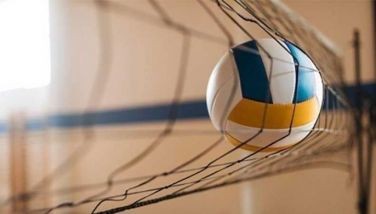Potty Training
Three days of potty training sounds like a made-up plan (since it is normally a lengthy process) but according to Julie Fellom's Diaper Free Toddlers program, this method might work for you and your child. This quick training is a wonder for most parents, but the faster the potty training practice is, the better it is for you!
The important steps when potty training, depending on how young your child is, are teaching your child how to pull his/her pants down and back up, emptying the potty and washing his/her hands right after. However, the most important aspect is to remember is that there is no "correct" way to do this - use one that works best for you.
First, you will need to ensure that your child is slowly showing signs that he/she is ready for this - once they start walking, talking and understanding commands are a few signs to take note of. Fellom however, prefers to use this method with children who are younger than 28 months old, not at three years of age where it is less likely to work. A month or so before the actual process, try to clear all unnecessary activities by devoting time to your child to get into a routine before you begin. During this period, it is recommended to introduce and educate your child about what and how a potty works.
A week before the three-day training, you might want to explain to your little one that he/she will have the experience of being diaper-free by making it seem like a fun game all together! According to Fellom, this method does work well since children at this age love to go around naked, and that the goal is to be naked or "diaper-free".
Day One: Have your child wear loose clothing on top but be naked below the waist. You as a parent should be watching out for signs when he/she has to go. Once there, take your little one to the potty place (cross fingers that you make it in time). Throughout the day, encourage your child to drink a lot of fluids (most do with milk anyway) and have a set of supplies for cleaning accidents, which are likely to happen. In the evening, before going to bed, you may or may not put on a diaper on your child - it all depends on how confident you feel about the situation.
Day Two: It is the exact same scenario as day one, but the only difference is that on the second day, you might want to take your little one outside of the house, nowhere too far and with no diapers on (except for loose pants), for a short walk - an hour max. You may even want to take a portable potty with you just in case. But remember to use the potty as often as required.
Day Three: Again, the exact same scenario as day one but this time, take your child outside of the house, once in a morning and again in the afternoon. Ensure to always have your little one use the potty before leaving the house. He/she should wear the same clothing type - loose pants with no diapers.
At the end of this three-day training, your child should give you clearer signs when he/she has to go, or might even tell you when the potty is needed. Bear in mind that using this method doesn't completely mean that you child will be perfectly potty trained in the said amount of days. Do expect success during this training but with few accidents in the process. But don't stop right there! Maintain diaper-free during daytime and nighttime (if you feel confident). After all, it's all a part of growing up!
Helpful Book:
Toilet Training in Less Than a Day (1974) by psychologists Nathan H. Azrin and Richard M. Foxx
Helpful Resource:
www.babycentre.com
- Latest
- Trending



















